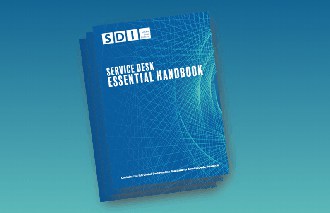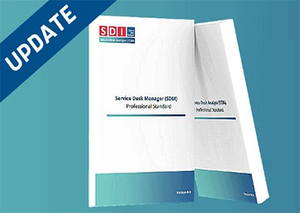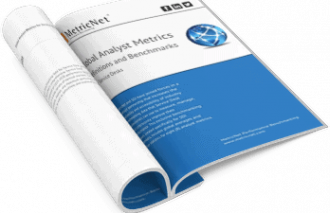
Over the past few years, the workplace has experienced significant changes due to technological advancements and a greater emphasis on the human element. And as the future of worklife in ITSM continues to evolve, it brings new opportunities and challenges. So, how do technological advances affect IT professionals? What are some of the key considerations as we embrace the future of work? What opportunities and challenges should we expect, and how can we be prepared for them?
To comprehend the future of work, we need to have a deeper understanding of how technology, people, and the evolving work environment all work together. This knowledge will enable us to answer numerous questions regarding the future of work.
So, in our latest research report, ’The Future of Worklife in ITSM: tech, trends and the human factor,’ we explored the intricate relationship between technology, humans, and the future of work. We wanted to understand what organisations are focusing on now and in the near future. We delved into the importance of upskilling and reskilling, emphasising the need for continuous learning in an era of rapid change.
We have recognised the importance of encouraging a human-centred approach, where empathy, communication and collaboration become vital pillars in the future of work.
Here are some of the key findings.
- Improving the end-user experience is the core strategy.
- AI development will accelerate in the next two years with new technology.
- Very few IT professionals are concerned about job security.
- 42% of the participants stated that their main workplace is their home, while 36% reported being hybrid workers.
- 71% are happy in their current role, but 42% are considering leaving.
- Improved salary or benefits would make worklife balance better, alongside augmenting staff levels and establishing clear expectations and objectives.
Improving the end-user experience is the core strategy.
According to our research, the top three priorities for organisations within the upcoming 12 months have been identified as follows: enhancing the end-user experience, improving the employee experience, and digital transformation strategy.
Interestingly, it was found that approximately 75% of respondents have shown a strong inclination towards focusing on enhancing the end-user experience, while about 50% have opted to concentrate on improving the employee experience. In many cases, these may be the same thing, however, these results suggest that organisations are becoming increasingly aware of the critical role played by end-users and employees in driving overall success and growth and are taking proactive measures to ensure their satisfaction and engagement.

AI development will accelerate in the next two years with new technology.

In the next two years, we can anticipate significant advancements in the creation of intelligent platforms and AI-powered assisted service propositions. There is a notable advancement in the technology of large language models (LLM), particularly with the development of OpenAI’s GPT-4.
This suggests that the growth of generative artificial intelligence and artificial general intelligence may indicate a crucial moment in IT service management.
Very few IT professionals are concerned about job security.

We gathered feedback from respondents on their concerns regarding job displacement due to AI. To assess this, we asked if they were worried about their job security. The results showed that 58% of respondents disagreed with the statement, and 25% strongly disagreed. Only 17% of respondents agreed or strongly agreed.
To gain further insight, we also asked about individuals’ primary concerns regarding job stability, which are further elaborated on in the complete research report.
71% are happy in their current role, but 42% are considering leaving.
Based on SDI research, most individuals feel content with their pay and current positions. However, this does not necessarily prevent them from considering leaving their current job. One important consideration here is whether we offer enough opportunities for career growth and advancement to encourage employees to stay in their current positions.

And given the increasing prevalence of remote and hybrid work arrangements, as well as changing work environments, it is important to provide adequate support to employees. So, it’s crucial to understand if organisations have made any changes or are merely adapting their regulations and guidelines to support the needs of remote workers.
Improved salary or benefits would make worklife balance better.
As part of our research, we asked our respondents about ways their worklife balance could be enhanced, as well as actions their organisation could take to improve their emotional wellbeing by 2024.
Some of the most effective methods of improving worklife balance are increases in salary or benefits, followed by augmenting staff levels and establishing clear expectations and objectives.
You can access the complete version of this research report by downloading it here ’The Future of Worklife in ITSM: tech, trends and the human factor’.
Why join SDI?
Gain access to exclusive insights with our research report, available only to our valued members! Discover the value of membership as you unlock this report and future ones for free!
Join SDI Membership to stay up-to-date on ITSM and overcome industry challenges with exclusive resources, discounted training, and helpful templates and calculators for measuring service desk performance. Plus, receive a complimentary benchmarking data pack to compare your team’s performance with industry standards.

Antonija Bozickovic
SDI Content Creator



























